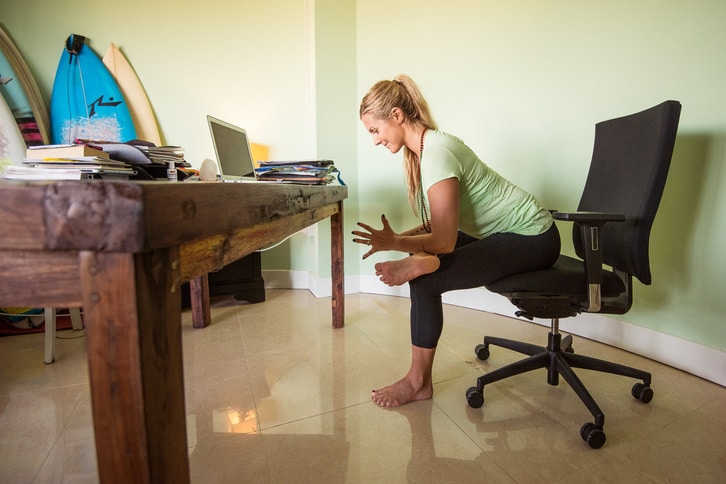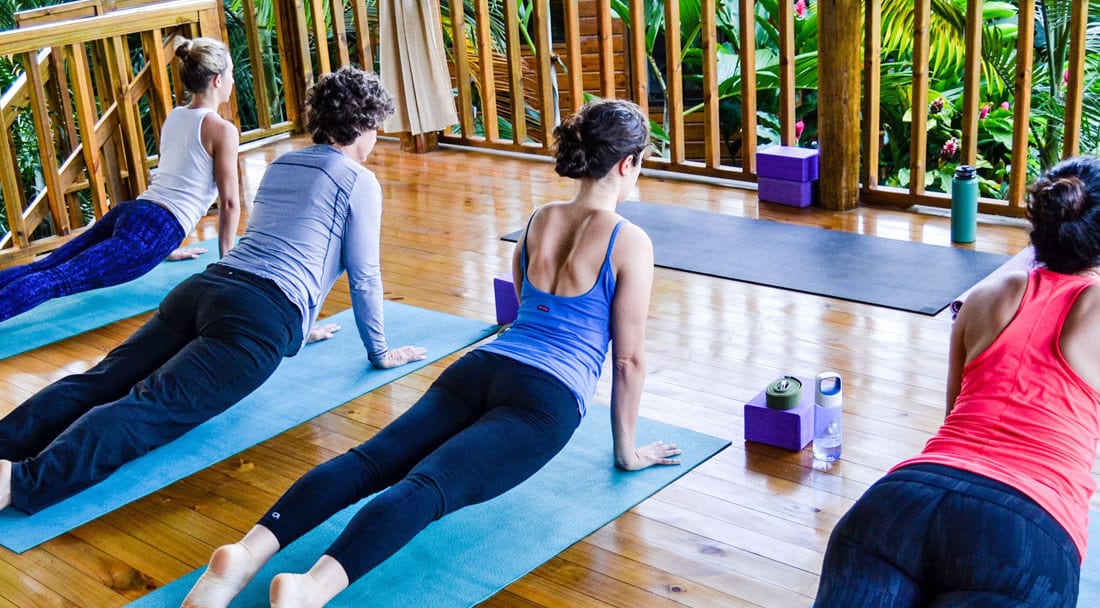
A yogi is someone who regularly practices yoga. They can be either males or females and are often very committed to their practice.
Yogis are those who practice yoga and combine spiritual and physical exercises to improve their well-being. The term can also be used to describe those who live a yogic lifestyle. This includes self-study and meditation.
What is a Yogi, and how do you define it?
A yogi's daily activities may include practicing yoga, meditation or other mindfulness and spiritual practices, as well as work and other responsibilities. It's important for a yogi to find a balance between these activities so that they can achieve a sense of harmony and peace within themselves.
How do I become an yogi?
To become a yogi, you must accept yourself as an individual with all of your positive and negative qualities. If you're able to do this, you'll be on your way to discovering the secret of living life to the fullest.

You can start by observing your thoughts and emotions. This will help you learn about yourself and how to interact with the world around you. You'll be able to identify and change any negative patterns or behavior so you can improve them.
Next, set yourself goals. This can be anything from learning new poses to practicing mindfulness or meditation more often. There are many resources out there to help you get started.
3. Yoga ethics and values should be practiced
Yoga, an ancient discipline, incorporates many different kinds of spiritual, mental and physical practices. It includes a series of ethical principles that focus on cultivating a more peaceful, contented and positive life. These principles, also known as the Yamas or Niyamas are easily incorporated into your daily life.
4. Avoid violence, hostility and cruelty towards others
Yogis understand that all sentient beings are equal and have a strong respect for them. They avoid violence and aggression verbally and physically. They avoid products and services that are based on animal slaughter.
5. Follow a yogic diet
A yogi's food choices are typically healthy and balanced, focusing on eating whole foods and avoiding excessive salt, sugar and fats. It is important to drink lots of water as this will help cleanse your body and improve your overall health.

6. Honesty with yourself and others is key
A yogi abides by the principle of truthfulness, which means speaking the truth regardless of how it affects others. This principle is particularly important in the spiritual realm because it requires that you are honest with others.
A yogi must be able to speak the truth without bending it or trying to hide it from others, and they must be willing to admit mistakes or misjudgments when they happen. This is a key part of yoga's moral discipline called satya. To be a positive influence in the lives and hearts of those around us, it is important to be honest with yourself.
FAQ
Is yoga safe?
Yes! Yoga is generally considered safe and low-risk. However, if you have any medical conditions and injuries, it is a good idea to consult your doctor before trying yoga.
What are some of the health benefits that yoga has for you?
Yoga originated in India and is an ancient form of meditation. Hindu monks developed it over several centuries as a way to improve physical fitness and mental well-being. Many people practice yoga to relax and relieve stress. Some believe that yoga helps them build strength and flexibility.
Yoga can also improve balance and coordination. This makes it an excellent exercise for older adults who wish to remain active. It can help prevent injuries from falls or other causes.
Yoga is good to your heart because it strengthens you cardiovascular system. If you are overweight, have high bloodpressure, or have diabetes, yoga can be a great option.
Yoga also reduces stress, anxiety, depression, and insomnia. These conditions can cause chronic pain so it is especially important to practice yoga for those with arthritis and/or fibromyalgia.
Your muscles lose elasticity as you age. Yoga is a great way to keep your muscles strong and flexible. You'll find that yoga gives you more energy and stamina as you age.
According to the National Institute on Aging, regular yoga can reduce depression symptoms such as fatigue and feelings depressed. According to the Institute, yoga can reduce cholesterol and increase bone mass.
Yoga can also ease headaches and back problems. Yoga's slow pace, gentle movements and effectiveness in relieving muscle spasms can be attributed to its effectiveness for strains and muscular spasms.
How long does a pro yoga teacher take?
It depends on which type of yoga you do. Some styles are slower than others. But even if you're just beginning, you can expect to improve over time.
The more you practice, you will get better. After a few weeks of consistent practice, you will notice improvements.
Statistics
- The American Psychological Association recently shared that 84% of American adults feel the impact of prolonged stress (5). (healthline.com)
- About one in seven U.S. adults practiced yoga in the past 12 months, according to a 2017 national survey. (nccih.nih.gov)
- In comparison, a 125-pound person is estimated to burn 135 calories in 30 minutes of walking (at a pace of 15-minute miles) and 210 calories bicycling at a moderate pace on a stationary bike. (everydayhealth.com)
- Gentle yoga has been shown to ease some of the discomforts of tender, swollen joints for people with arthritis, according to a Johns Hopkins review of 11 recent studies. (hopkinsmedicine.org)
- According to calorie estimates calculated at Harvard Medical School, the average 125-pound person burns about 120 calories in a half hour of hatha yoga, and a 185-pound person burns about 178 calories in that half hour. (everydayhealth.com)
External Links
How To
What can yoga do for your menopause symptoms
Yoga is an ancient Indian practice that focuses on yoga, meditation, and breathing. It has been used to stay fit for thousands upon thousands of years. It is becoming increasingly popular as people look for ways to stay fit and healthy in times of stress and illness.
Yoga is about using physical positions (asanas), to strengthen muscles, improve posture, and increase flexibility. This helps relieve tension and increase strength and stamina.
There are many types and styles of yoga. Each type focuses on specific aspects of the body, such as breath, stretching, and relaxation.
All forms of yoga have the same goal: to restore balance within the body as well as the mind. Yoga can improve your fitness, sleep quality, weight loss and energy levels as well as reduce stress levels.
Numerous studies have demonstrated that yoga can be used to treat anxiety, depression, and insomnia. However, there is little conclusive evidence of its effectiveness for other health issues such as menopausal symptoms.
Yoga not only makes you happier but also helps you relax and manage stressful situations. This can be useful for women going through menopause.
It is important to note that yoga can cause muscle soreness after exercise, so starting at a low-intensity level is wise. Talk to your doctor if you have any questions about your condition or are uncertain if yoga would be beneficial for you.